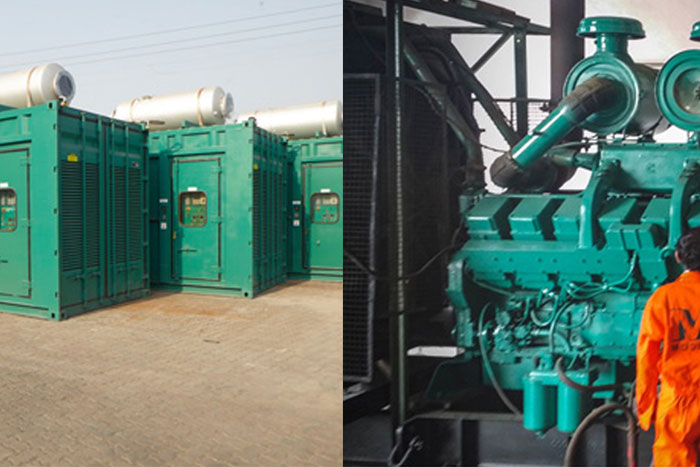
Which Generator Is Right For You Diesel Or Gas?
Diesel generators are renowned for their economy, and the explanation is straightforward: Since they employ compression to ignite the fuel, they consume less fuel than a gas generator. Diesel generators are able to produce electricity while using less fuel because they individually inject and compress fuel and air into the engine.
A diesel generator typically operates at roughly 40% efficiency throughout its intended optimal working range, which is often up to 80% of overall load capacity. In other words, 40 units of energy are supplied as output for every Hundred units of energy received. There is power loss from heat & friction in every mechanical system.
In general, diesel fuel has a peak energy density that is roughly three times more than that of natural gas, or 129 against 37 btu. As a result, diesel generators still outperform gas generators in terms of energy efficiency.
However, there are other factors to take into account when choosing a generator in addition to fuel economy. Certain advantages of a gas generator, such as their propensity to be quieter and more environmentally friendly, may be appealing based on your usage and power requirements.
What Other Factors Should You Take Into Account?
Your choice of a diesel or gas generator will depend on a variety of criteria, including fuel economy. Before choosing between diesel and natural gas generators, it’s crucial to analyze all the advantages and disadvantages of each and how each will fit into your total power generating requirements.
Efficiency
Generally speaking, diesel generators are more efficient than gas ones. Diesel gasoline offers greater energy for your money.
Gas-powered generators are less effective. Even though natural gas is often cheap, it doesn’t have as much energy.
Availability
Although diesel is commonly accessible, delivery delays might be caused by weather. For operations to last over time, on-site storage is essential.
In populous places, natural gas is often accessible, however supply may be interrupted during certain localized incidents. Additionally, it could not be accessible in rural locations. You can be responsible for paying for supply lines.
Maintenance
For efficiency to remain high and emissions to remain low, routine maintenance is essential. A diesel engine requires less maintenance than an equivalent gas engine.
Due to the use of wires and spark plugs, gas engines may require more frequent maintenance.

